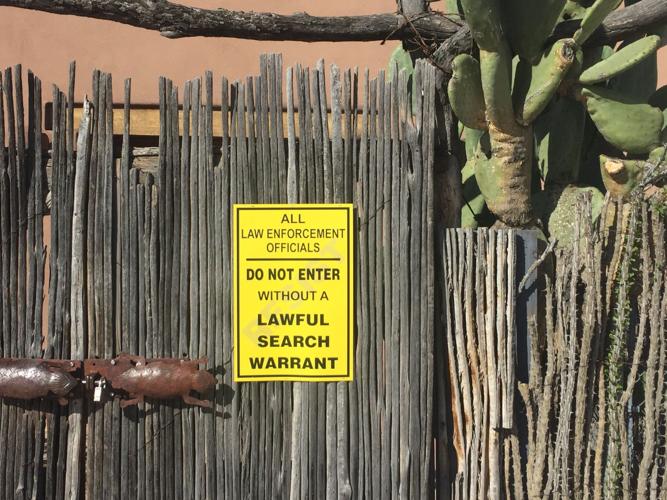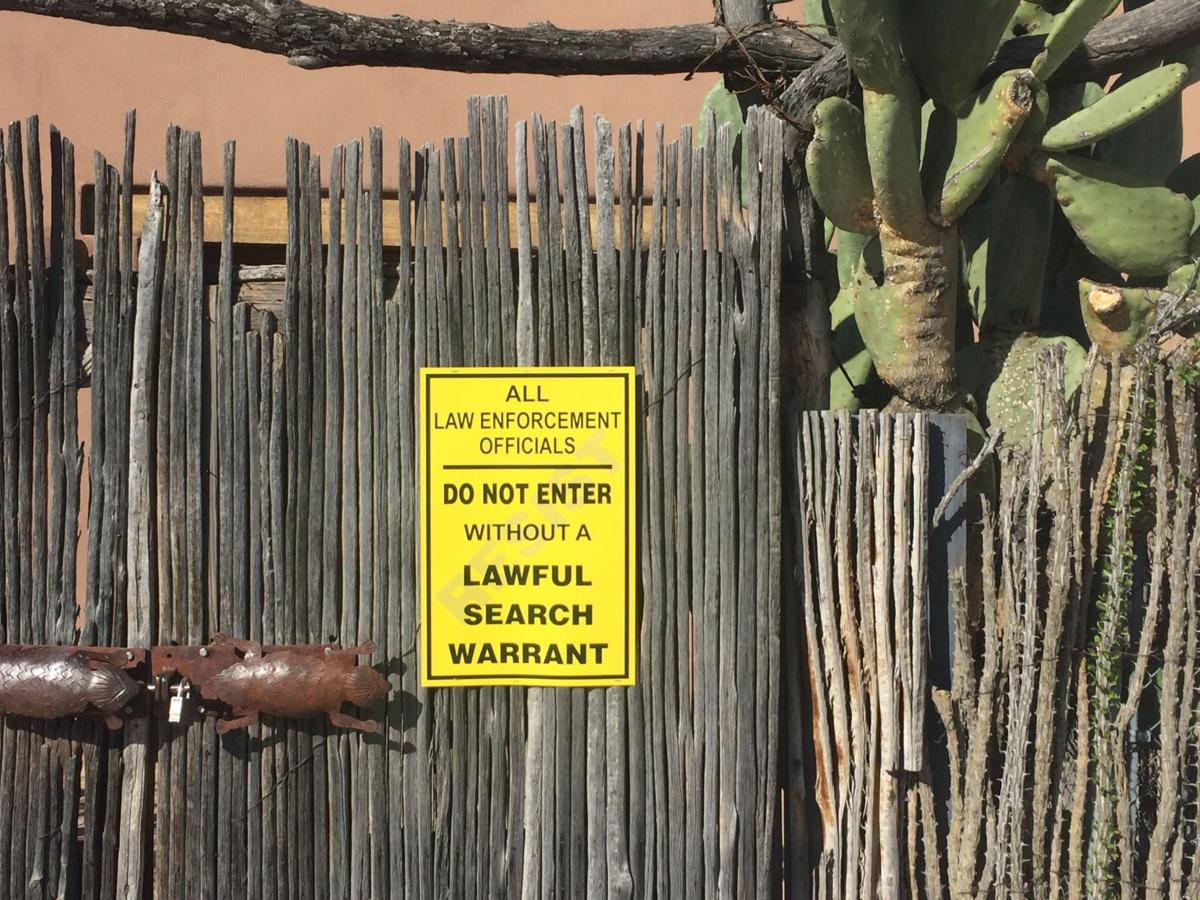She’s American, she has a passport, and yet she’s still a bit worried, and justifiably so in these strange times.
Calli Astroth, 20, was adopted from China at 14 months. She doesn’t remember anything of her birth country and was raised in Montana and Tucson. As a child, she got a passport and traveled abroad with her family. But as happened with many families who adopted before a new law took effect in 2001, she didn’t get the gold-standard of citizenship documents for those adopted from outside the country — the certificate of citizenship.
Around the country, since President Trump issued immigration orders and increased enforcement efforts, attorneys who specialize in international adoptions are getting a wave of calls from citizens who were adopted from other countries and don’t have the certificate, said Emily Dudak Taylor, an international adoption attorney in Madison, Wisconsin. There is no question they are provably citizens, but the lack of that document could cause trouble when these people cross into the United States, apply for school admissions or financial aid, or go through any number of bureaucratic procedures.
“The effect Trump would have is to scare people into doing it, but also possibly detaining U.S. citizens who became U.S. citizens under the Child Citizenship Act but don’t have any proof of it,” Dudak Taylor said.
It’s a head-spinning scenario: Young adults who even have passports confronting possible trouble because in a given situation that may not be enough. But that is one of the more minor concerns these days in Tucson —other people’s worries are monumental.
• • •
On Wednesday morning I encountered a man I know who is undocumented and has lived a vagabond’s life here for years. He’s a smart man, trusted by families in the neighborhood whom he has worked for and come to know, and he speaks good English. He was in a fury.
The police were looking for him, he was convinced. He could not risk sitting down to talk. His eyes were wild like I’ve never seen them, and he took his anger and fear out on me, an American comfortable that neither I nor my family will be swept up in immigration raids.
“Tell me this, do I have human rights?” he asked again and again.
“Yes,” I finally said, “you do. But you may not have the right to stay in this country.”
“Thank you, you answered my question,” he said, unhappy with my response.
Then he cursed the Electoral College — he probably knows more about American government than most natives do — and took off.
• • •
That encounter woke me up to the reality thousands of people are facing in Tucson and Arizona, an urgent fear that their lives may be altered soon — for some in small ways, for others in terrible ways.
Of course some proportion of undocumented people merit deportation — why would we allow violent criminals, for example, to stay here?
But the well-publicized immigration sweeps that occurred in the last week or two were a prelude, it seems, to an increased effort to arrest not just criminals who are in the country illegally but potentially everyone, even the “Dreamers” who came forward to the government and now could be punished for it. Immigration and Customs Enforcement agents arrested a recipient of Deferred Action for Childhood Arrivals protection in Seattle last week, sending a ripple of fear through the 700,000-plus people who have enrolled.
Agents also arrested a woman who was pursuing an order of protection inside an El Paso courthouse. Her boyfriend — the target of the protection order —allegedly called the immigration agents to tip them off to her status. The old rules don’t seem to apply: Even crime victims could be targeted now.
Then there was the the trial balloon floated by the Department of Homeland Security — asking governors to call up the National Guard to enforce immigration laws. The administration quickly denied the idea’s validity, but the fact that the DHS circulated a memo on the idea should chill all Americans — it’s not what the National Guard is for and could tear the country apart if they are ordered to break up families.
On Wednesday night I attended a meeting of about two dozen people learning to become presenters of “Know Your Rights” workshops. Dulce Juarez of the American Civil Liberties Union led the training at Southside Presbyterian Church. Recently posted signs on the doors there say “All law enforcement officials: Do not enter without a lawful search warrant.”
The group went over some key phrases. “I do not consent to a search,” they said together.
Leading the trainees through scenarios in Spanish, Juarez asked them, as if they were a real audience at a Know Your Rights session, what they’re worried about. The answers that came from the trainees, though, were in earnest. Several women said when they drop their children off at school, they wonder if everything will be all right when they go to pick them up, or if they’ll be able to get there at all.
One said, “Sincerely nothing has been the same since this man became president.”
• • •
Strange to think that things have changed even for people like Kirk Astroth, Calli’s dad, who first told me about the disturbing situation with his daughter’s proof of citizenship. He learned of it when the adoption agency he used years ago, a Washington organization called WACAP, posted advice online that even passport holders should be sure to get a certificate of citizenship now.
“This whole message that a passport is not proof of citizenship is what’s baffling,” he told me.
Mary Moo, the vice president for adoptions at the agency, explained: “Technically, a passport is ample evidence of citizenship. The problem that comes up, and why we’ve always perpetually said get the certificate of citizenship, is that from bureaucrat to bureaucrat, whether it’s the Social Security office, college office, employment office, some of those bureaucrats don’t honor the passport like they should.”
That concern has escalated since Trump’s executive orders and efforts at increasing immigration enforcement have ramped up, Dudak Taylor, the Wisconsin attorney, said.
Calli Astroth, a nursing student at ASU, is scheduled to study in Shanghai this fall, and needs to get a new passport. She should be OK. But I asked her if she’s worried because of not having the certificate of citizenship, a document that costs $1,170 to obtain and can take up to a year.
“Only because I am going abroad,” said Astroth, a 2015 graduate of Cañada del Oro High School. “Also, who knows what the relationship between China and the U.S. is going to be? That’s another weird issue. They’re slight concerns. Nothing that keeps me up at night.”
• • •
Those who don’t have a passport or green card, or who have undocumented family members, are not sleeping so easily.
At the Mexican Consulate on East Broadway, calls to the nationwide call center located there have more than doubled since Trump took office, Consul Ricardo Pineda told me. There were about 600 calls per day to the 24-hour hotline before Jan. 20, and there are about 1,600 now.
The consulate hasn’t seen an increase in the number of Mexican citizens faced with deportation or other immigration enforcement actions yet, Pineda said, but it’s clear there has been a “hardening in immigration enforcement measures.”
Not all people affected by increased immigration enforcement are Mexicans, of course. I spoke Friday morning with a Guatemalan man in his 50s who said he has lived here illegally for 30 years. He worries about the police and immigration officials, he said, but is resigned to keeping his head down and accepting what fate brings.
“Behaving well is our only weapon,” he said.
These days, it’s not much of one.







